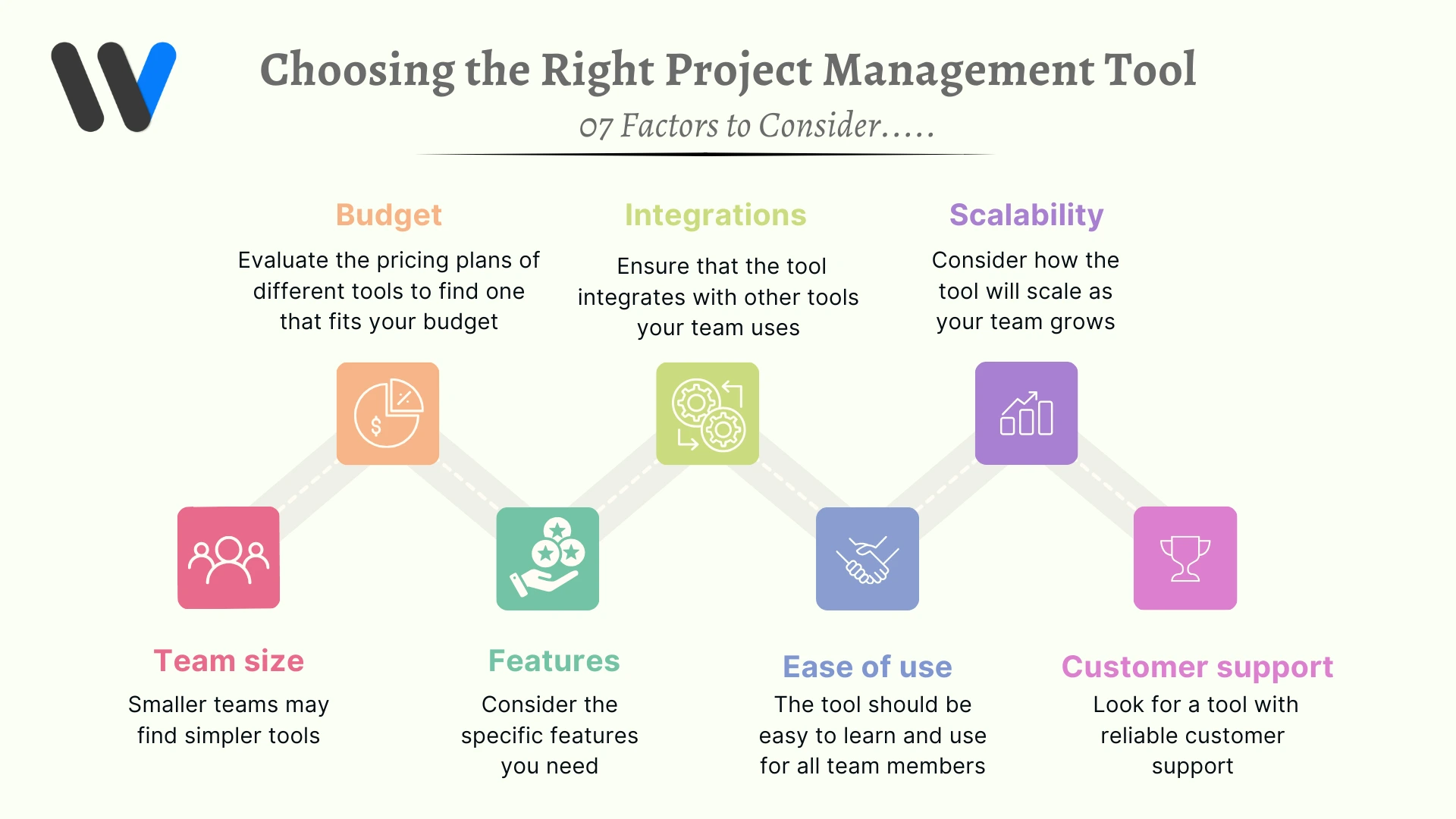
Did you know that a staggering 80% of marketers struggle with project management? This statistic highlights the persuasive challenges faced by many marketing teams in today’s fast-paced digital age. With the constant influx of new trends, technologies, and consumer demands, effective project management has become an indispensible tool for ensuring successful marketing campaigns.
Throughout this article we will discuss the critical role of projects management in marketing, exploring its benefits, best practices and essential tools. We’ll also examine real-world case studies to showcase how effective project management can drive tangible results and overcome common challenges.
Shall we start?
Project Management is the backbone of successful marketing campaigns. It provides a structured framework for planning, organizing, and executing marketing initiatives, making sure that they are completed on time, within budget, and to the desired quality standards.
1.Improved efficiency
Project management tools and techniques help streamline workflows, reduce bottlenecks, and optimize resources allocation.
2.Enhanced collaboration
Project management fosters better communication and collaboration among team members, ensuring that everyone is aligned on goals and responsibilities.
3.Increased accountability
Project management data can be used to inform strategic decisions and identify areas for improved.
4.Better decision-making
Project management data can be used to inform strategic decisions and identify areas for improvement.

Planning and coordinating all aspects of a new product launch, including marketing campaigns, sales enablement, and supply chain management.
Developing and executing content calendars, managing content creation, and tracking performance metrics of content marketing.
Planning and executing social media campaigns, monitoring engagement, and analyzing results.
Organizing and managing all aspects of events, including venue selection, speaker coordination, and attendee management.
Effective project management is essential for ensuring successful marketing campaigns. By following best practices, marketers can improve efficiency, enhance collaboration, and achieve desired outcomes throughout the project management process.
Let’s get into the essential principles for effective project management in marketing.
1. Define Clear Objectives
Clearly articulate the goals and desired outcomes of your marketing project.
Ensure that objectives are specific, measurable, achievable, relevant, and time-bound (SMART).
2. Develop a Detailed Project Plan
Create a comprehensive project plan outlining the scope, timeline, required budget, and resources.
Break down the project into smaller, manageable tasks and assign responsibilities to team members.
Use project management tools like Gantt charts or Kanban boards to visualize the project timeline and progress.
3. Effective Communication
Establish clear communication channels and regular communication cadence.
Use tools like project management software or team messaging apps to facilitate communication.
Encourage open and honest communication among team members.
4. Risk Management
Identify potential risks and develop strategies to mitigate them.
Create a contingency plan to address unexpected challenges.
Regularly review and update your risk management plan as the project progresses.
5. Monitor and Control
Track project progress against the project plan.
Identify any deviations from the plan and take corrective action.
Regularly review and adjust the project plan as needed.
6. Measure and Evaluate
Establish key performance indicators (KPIs) to measure the success of your marketing project.
Track and analyze data to evaluate the project’s effectiveness.
Use insights from evaluation to inform future projects and improve processes.
Why are having clear objectives, timelines, and budgets so important?
One of the most critical aspects of project management is setting clear objectives. Well-defined objectives provide a roadmap for the project, ensuring that everyone is aligned on the goals and outcomes. When objectives are specific, measurable, achievable, relevant, and time-bound (SMART), it’s easier to track progress and make informed decisions.
Timelines are equally important because a well-structured timeline helps teams stay organized and avoid delays. By breaking down the project into smaller, manageable tasks and assigning deadlines, teams can ensure that work is completed on time.
Budgets are another crucial factor because a clear and realistic budget helps teams allocate resources effectively and avoid overspending. By carefully tracking expenses and making adjustments as needed, teams can ensure that the project stays within budget.
What is the role of communication and collaboration in successful projects?
Open and honest communication among team members is essential for ensuring that everyone is on the same page and that potential issues are addressed promptly. Collaboration helps teams leverage each other’s strengths and work together towards a common goal. So we can conclude that Communication and collaboration play a vital role in successful projects.
There are numerous project management tools available that can help marketers streamline their workflows and improve efficiency. Here are some of the most popular options:
Worklenz

A comprehensive project management tool that offers features like task management, time tracking, collaboration tools, and reporting capabilities. Worklenz is specifically designed to help teams streamline their workflows and improve productivity.
Asana

A versatile tool that offers task management, team collaboration, and project tracking features. Asana is particularly well-suited for teams of all sizes and can be customized to fit specific workflows.
Trello

A visual project management tool that uses boards, lists, and cards to organize tasks. Trello is easy to use and ideal for teams that prefer a more visual approach to project management.
Basecamp

A comprehensive project management platform that includes features like task management, messaging, and file sharing. Basecamp is a good choice for teams that need a centralized hub for all project-related activities.
Monday.com

A customizable project management tool that allows teams to create custom workflows and dashboards. Monday.com is suitable for teams of all sizes and can be used to manage a wide range of projects.
ClickUp

A powerful project management tool that offers a variety of features, including task management, time tracking, and resource management. ClickUp is a good choice for teams that need a flexible and customizable solution.
Jira

Originally designed for software development, Jira can also be used effectively for marketing projects. It offers features like issue tracking, agile project management, and reporting.
Wrike

A cloud-based project management tool that offers features like task management, time tracking, and resource management. Wrike is suitable for teams of all sizes and can be customized to fit specific workflows.
When selecting a project management tool, consider the following factors:

Team size: Smaller teams may find simpler tools.
Budget: Evaluate the pricing plans of different tools to find one that fits your budget. Many tools offer free trials or freemium plans to help you assess their suitability.
Features: Consider the specific features you need, such as task management, time tracking, collaboration tools, and reporting capabilities.
Integration with existing tools: Ensure that the tool integrates seamlessly with other tools your team uses, such as email, CRM, and marketing automation platforms.
Ease of use: The tool should be easy to learn and use for all team members. Look for tools with intuitive interfaces and helpful documentation.
Scalability: Consider how the tool will scale as your team grows and your projects become more complex.
Customer support: Look for a tool with reliable customer support in case you encounter any issues.
By carefully considering these factors, you can choose a project management tool to help your marketing team work more efficiently and effectively.
Case Study 1: A Tech Startup’s Product Launch
A tech startup was preparing to launch a new product and needed a project management tool to coordinate the various marketing activities involved. They chose Worklenz to create a central hub for tracking tasks, assigning responsibilities, and monitoring progress. Worklenz helped the team stay organized, ensure deadlines were met, and effectively manage the launch of their new product.
Case Study 2: A Global Marketing Campaign
A multinational corporation was launching a global marketing campaign to promote a new product line. They used Wrike to coordinate teams across different regions, track progress, and ensure consistency in messaging. Wrike’s collaboration features helped teams work together effectively, despite being geographically dispersed.
Case Study 3: A Small Marketing Agency
A small marketing agency needed a tool to manage multiple client projects simultaneously. They implemented Trello to visualize project workflows, track tasks, and collaborate with clients. Trello’s simplicity and flexibility made it a great fit for their small team.
Key takeaways from these case studies
Project management tools can help marketing teams improve efficiency and productivity.
Choosing the right tool depends on your team’s size, budget, and specific needs.
Effective project management requires clear communication, collaboration, and a focus on achieving objectives.
For those who like to crunch the numbers, here’s a quick look at how project management impacts marketing teams:
426% - Marketers using project management tools are this much more likely to report campaign success.
30% - Average increase in team productivity with structured project workflows.
50% - Reduction in missed deadlines when project management tools are implemented.
25% - Cost savings observed by marketing teams optimizing resource allocation through project management.
These figures are more than just statistics—they demonstrate how the right tools and practices can directly contribute to better outcomes in marketing campaigns.
In the dynamic marketing world, where deadlines are tight, budgets are limited, and consumer expectations are constantly evolving, effective project management is no longer a luxury but a necessity. By adopting best practices, leveraging the right tools, and learning from the experiences of others, marketing teams can streamline their workflows, enhance collaboration, and deliver exceptional results.
So, the next time you’re faced with a complex marketing project, remember the power of project management. It’s the key to turning challenges into opportunities and achieving your marketing goals.